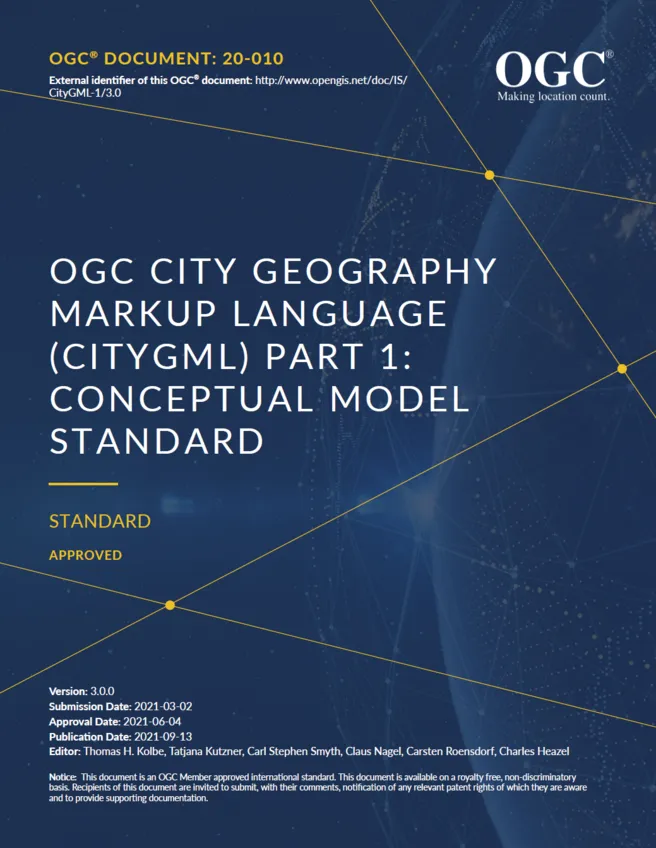The Open Geospatial Consortium (OGC) published the new version 3.0 of the international OGC standard CityGML on 13 September 2021. The Chair of Geoinformatics at the Technical University of Munich played a leading role in the development of the new CityGML version.
In particular, research work on the integration of time-dependent properties in semantic 3D city models became an integral part of the new Dynamizer module of CityGML 3.0. This module defines concepts to represent time-dependent information related to city objects (e.g. solar irradiation over the course of the day on a house wall) and to couple sensors and IoT devices with 3D city models. This enables true 4D city models, which play an important role especially for Smart Cities and Urban Digital Twins. The Chair also contributed to the new Versioning module, which allows the representation of multiple versions of a city object (e.g. historical versions or alternative planning versions) within one city model.
The Transportation module also benefited from the Chair's research. CityGML 3.0 now offers a more detailed representation of traffic spaces down to the level of individual lanes and also allows the modelling of multimodal traffic spaces, which include roads, railways, waterways and tracks. This makes CityGML 3.0 particularly useful for navigation systems, traffic simulations, driver assistance, and autonomous driving.
The Chair of Geoinformatics also contributed significantly to the model-driven approach for CityGML 3.0. CityGML 3.0 provides for a clear separation of the conceptual model and the encodings. The conceptual model was defined with the modelling language Unified Modeling Language (UML) and is compliant to the relevant ISO standards from the geospatial domain. In this way, various encodings can be automatically derived from the conceptual model. The just published standard defines this conceptual model. Another standard specifically for the GML encoding is currently being developed by the OGC. Corresponding XML schemas and test data are already available. Other possible formats such as database schema and JSON will follow later.
CityGML 3.0 Standard: https://docs.ogc.org/is/20-010/20-010.html
CityGML 3.0 XML schemas: https://github.com/opengeospatial/CityGML-3.0Encodings/releases
CityGML 3.0 test data: https://github.com/opengeospatial/CityGML-3.0Encodings/tree/master/CityGML/Examples
Further information and links to CityGML incl. software and open data: https://www.ogc.org/standards/citygml
